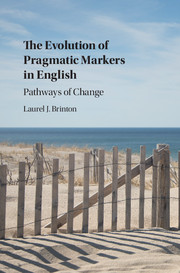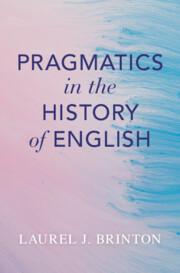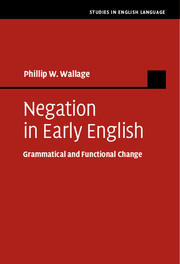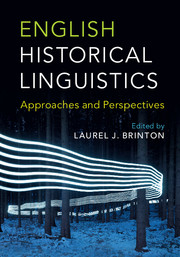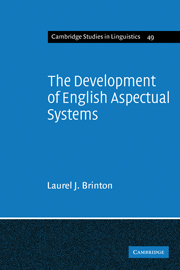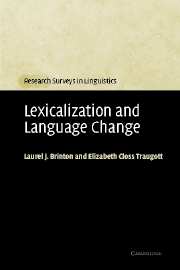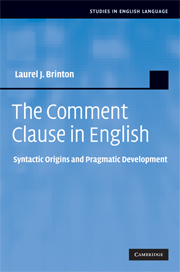The Evolution of Pragmatic Markers in English
Based on a rich set of historical data, this book traces the development of pragmatic markers in English, from hwæt in Old English and whilom in Middle English to whatever and I'm just saying in present-day English. Laurel J. Brinton carefully maps the syntactic origins and development of these forms, and critically examines postulated unilineal pathways, such as from adverb to conjunction to discourse marker, or from main clause to parenthetical. The book sets case studies within a larger examination of the development of pragmatic markers as instances of grammaticalization or pragmaticalization. The characteristics of pragmatic markers - as primarily oral, syntactically optional, sentence-external, grammatically indeterminate elements - are revised in the context of scholarship on pragmatic markers over the last thirty or more years.
- Re-assesses the characteristics of pragmatic markers to update and revise them in light of contemporary scholarship
- Provides detailed and data-rich diachronic studies of a set of pragmatic markers in English, including forms which have not previously been discussed
- Is the only book-length work dealing with the historical development of pragmatic markers in English, combined with fine-grained empirical studies
Product details
August 2017Adobe eBook Reader
9781108327138
0 pages
18 b/w illus. 28 tables
This ISBN is for an eBook version which is distributed on our behalf by a third party.
Table of Contents
- 1. Pragmatic markers: synchronic and diachronic
- Part I. From Lexical Item to Pragmatic Marker:
- 2. Old English hwæt
- 3. Middle English whilom
- 4. Modern English only and if only
- Part II. From Clausal Construction to Pragmatic Marker:
- 5. Epistemic parentheticals
- 6. I / you admit and admittedly
- 7. Forms of say: that said and I'm just saying
- 8. Two politeness comment clauses: if I may say so and for what it's worth
- 9. What is more and whatever
- 10. Concluding remarks: pathways of change
- Appendix: list of corpora and text collections
- References
- Index.

